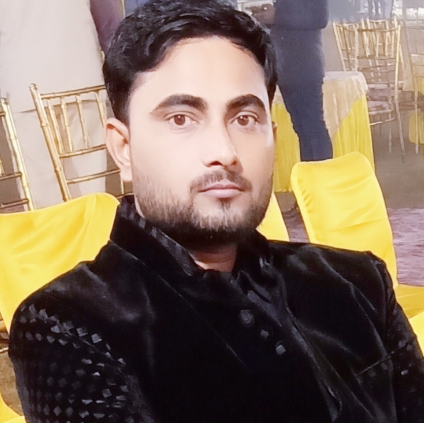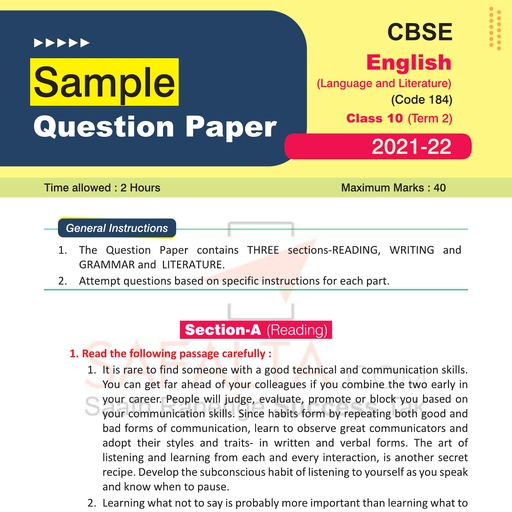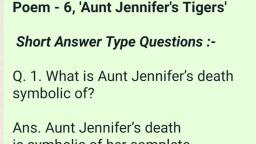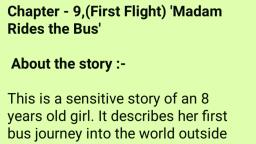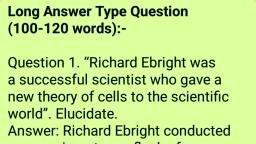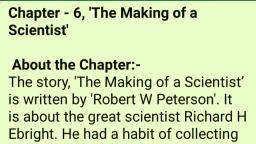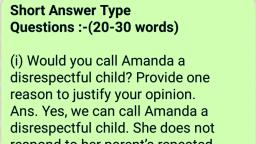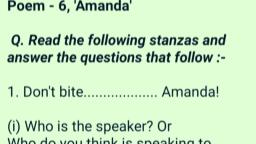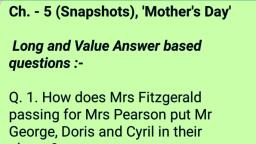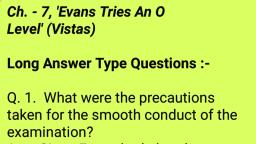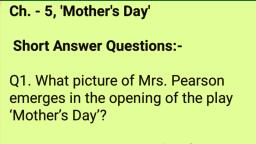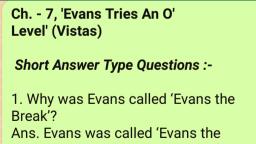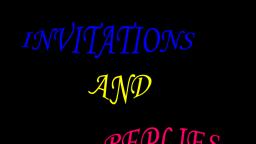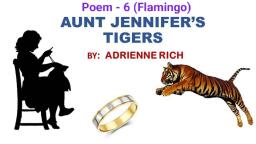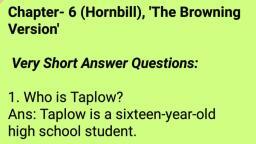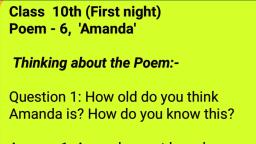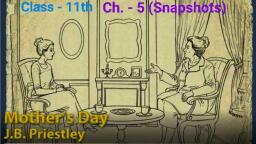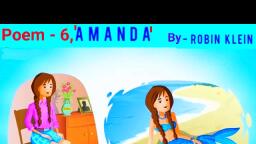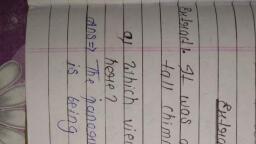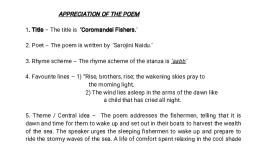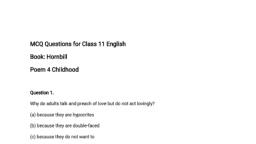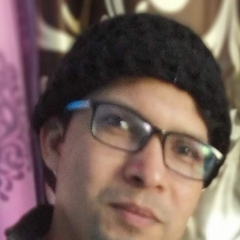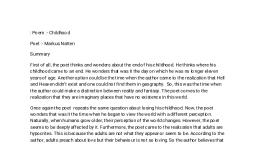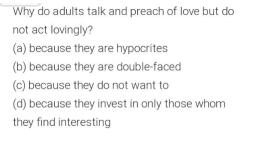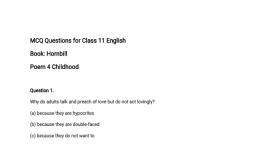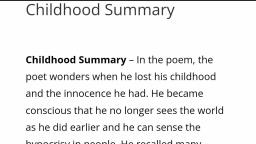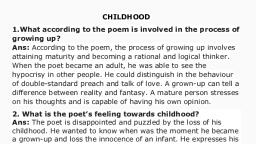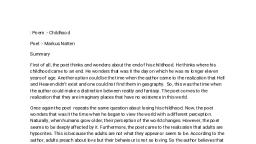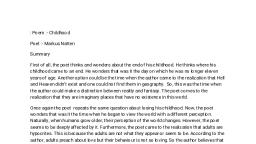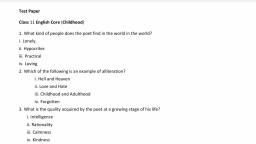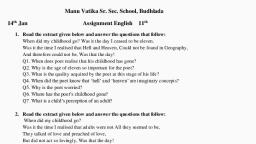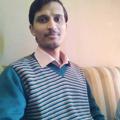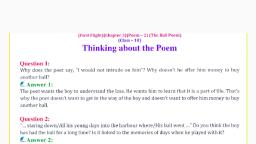Page 1 :
Long Answer Type Questions, (100-120 words) :, , 1. How does the poem explain, childhood? What is so special about, childhood? How are children different, from adults?, , Ans. The poet regards childhood, , as a period of heavenly innocence., , A child sincerely feels that there is, God above. He is free from all earthly, evils. He believes that there is really, a Heaven and a Hell. He is truly, raligious in his soul. A child knows, no hypocrisy. He always means what, says. There is no difference between, his thoughts and actions. A child, , is free from any sense of ego. He, doesn't think himself to be different, from or superior to others., Childhood symbolises innocence,, purity, softness and love. As a child, grows, these qualities start receding., Man becomes impure, cunning,, shrewd and hypocrite. Grown-ups, become blatant liars. They talk, , of love but practice hatred. They, preach brotherhood of mankind, , but perpetuate hatred and killing., Simplicity and honesty evaporate
Page 2 :
into a thin air, the moment man, crosses the threshold of innocent, childhood., , 2. Write a brief summary of the poem, “ Childhood’., , Ans. The poet ponders deeply, , upon spiritual questions of life and, ultimately, realises the fact that, , his childhood days were finally, , gone down into the past of eternity, for good and would never return., Childhood would now only remain, , in his memories. He wonders if the, end of his childhood was the day he, ceased to be eleven years old; the, time when he realised that Heaven, and Hell are not real places because, they could not be located in any, geography books and never could be., The poet also realises that adults, were not all they seemed to be. They, talk of love, but practise hatred., , In the poem ' Childhood, the poet, , is trying to realise the age when he, lost his childhood; when he became, mature enough to understand the, worldly things. So, he keeps asking,, "When did my childhood go?" He, finally realises that his childhood is, gone to some forgotten place that is
Page 3 :
hidden in an infant's face., , 3. What is the central idea of the, poem ‘Childhood’?, , Ans. In this poem, the poet thinks, deeply over the question of his lost, childhood. Childhood, , is a stage of innocence in which, , the child believes others and loves, unconditionally. The, , poet has tried to identify some, , stages of his life when his thoughts, and perceptions of the world, changed. The poem describes the, first step to maturity or loss of, childhood when one is able to think, logically and rationally. Forming one's, own opinion and getting influenced, by others is also a sign of maturity or, loss of childhood., , The poem also hints at the hypocrisy, prevalent in our society, where people, pretend to be nice to each other, but, in reality, they do not like each other., , 4. Markus Natten, though showing, disapproval regarding the behaviour, of adults, also raises a very important, point, that of independent thinking, and individuality. Do you agree, , that independent thinking and
Page 4 :
individuality make us what we are?, Elaborate in the context of the poem ', Childhood., , Ans. Of course, independent thinking, is a step towards adulthood. As a, child, one is not able to make one's, own decisions and oness thinking is, always influenced and directed by, adults. A child is so innocent that he, cannot distinguish between truth and, imagination., , As a child's thinking is, , influenced by others, it has no, individuality. Moreover, it is prone, , to manipulations which lead to, fickle-mindedness. Independent, thinking makes us what we are. It, shapes our personality and we are, known among people through what, our mind thinks and what decisions, we take., , lf we want to stay away from evil, people, who try to influence our, thoughts for their selfish purposes,, then only independent thinking, , can help us. We cannot claim to, , be an individual, if we cannot take, decisions ourselves., , 5. What is the greatest loss to the, poet?
Page 5 :
Ans. The poet has discussed a lot, about the different losses he faces, while he is growing up. Through this, poem, Markus Natten raises moral, questions about the education,, immoral behaviour of adults and the, respect of one's individuality and, independence. He confess that the, greatest loss is losing innocence, , in childhood. The poet laments the, loss of the innocence he had as a, child. He regarded childhood as an, important stage in the process of, growing up. He believed that when, he turned twelve, Hell and Heaven,, as he had been told, did not exist., He reasoned through his ideas and, came to his own conclusions. He lost, confidence in people and began to be, a bit more cynical. Towards the end,, the poet has one hope that he could, see his childhood being manifested, into some other infant. He is happy, that he could see his childhood,, though he would not be able to, experience it any more., , 6. Compare and contrast between, childhood and adulthood, as, mentioned in the poem.
